Welcome to the ultimate guide to the benefits of cheese! Cheese lovers, rejoice, because this article is about to unveil the healthy side of everyone's favorite dairy delight. Contrary to popular belief, cheese can be part of a balanced and nutritious diet.
In this article, we will explore the various health benefits that cheese has to offer. From providing essential nutrients like calcium, protein, and vitamins to contributing to bone health and dental care, cheese has a lot more to offer than just its delicious taste. But that's not all! We will also delve into the different types of cheese and their unique benefits, whether it's the creamy richness of brie, the tanginess of cheddar, or the versatility of mozzarella. Additionally, we will address common misconceptions surrounding cheese, such as its association with weight gain or high cholesterol.
Whether you're a cheese connoisseur or simply enjoy the occasional indulgence, this guide will show you that cheese can be enjoyed guilt-free and can even contribute positively to your overall health. So grab a cheeseboard and let's dive into the world of cheese benefits!
Nutritional Benefits of Cheese
Cheese is a powerhouse of essential nutrients that can greatly benefit your overall health. One of the primary reasons cheese is considered a healthy food is its high calcium content. Calcium is crucial for maintaining strong bones and teeth, and it also plays a crucial role in muscle function, muscle pain, nerve transmission, and blood clotting.
In addition to calcium, cheese is also an excellent source of protein. The high-quality protein found in cheese can help support muscle growth and repair, as well as promote feelings of fullness and satiety. This can be particularly beneficial for individuals looking to maintain a healthy weight or build lean muscle mass.
Cheese also contains a variety of vitamins and minerals, including vitamin A, vitamin B12, riboflavin, and zinc. These nutrients contribute to a healthy immune system, healthy vision, and proper red blood cell formation. Furthermore, some types of cheese, such as aged cheeses, contain probiotics that can support a healthy gut microbiome.
Types of Cheese and Their Health Benefits
The world of cheese is vast and diverse, with each type offering its own unique set of health benefits. Let's explore some of the most popular varieties and their respective advantages:
Cheddar Cheese: Cheddar is a firm, sharp-tasting cheese that is rich in calcium, protein, and vitamin B12. It has been shown to support bone health and may even help lower the risk of heart disease due to its content of conjugated linoleic acid (CLA), a type of healthy fat.
Mozzarella Cheese: Mozzarella is a soft, mild-tasting cheese that is particularly high in protein and low in fat. It is a great option for those looking to incorporate cheese into a balanced diet, as it can be easily incorporated into a variety of dishes, from salads to pizza. It can be used in IVF treatment diets as well.
Brie Cheese: Brie is a soft, creamy cheese with a rich, buttery flavor. It is a good source of calcium, vitamin B12, and probiotics, which can support a healthy gut. Brie also contains linoleic acid, which may have anti-inflammatory properties.
Cheese and Bone Health
Cheese is an excellent source of calcium, which is essential for maintaining strong and healthy bones. Calcium plays a crucial role in the formation and maintenance of bone tissue, and it helps prevent the development of osteoporosis, a condition characterized by weakened bones and an increased risk of fractures.
In addition to calcium, cheese also contains other bone-supporting nutrients, such as phosphorus and vitamin D. Phosphorus works alongside calcium to build and strengthen bones, while body transformation and vitamin D helps the body absorb calcium more efficiently.
Studies have shown that consuming cheese regularly can help increase bone mineral density and reduce the risk of fractures, particularly in older adults. One study found that individuals who consumed the most cheese had a 37% lower risk of hip fractures compared to those who consumed the least.
Cheese and Heart Health
Contrary to popular belief, cheese can actually be beneficial for heart health when consumed in moderation as part of a balanced diet. While cheese does contain saturated fat, recent research has suggested that the relationship between saturated fat and heart disease is more complex than previously thought.
In fact, certain types of cheese, such as aged cheddar and parmesan, contain a type of healthy fat called conjugated linoleic acid (CLA). CLA has been shown to have anti-inflammatory properties and may help lower the risk of heart disease by improving cholesterol levels and reducing the buildup of plaque in the arteries.
Additionally, cheese is a good source of protein, which can help lower blood pressure and reduce the risk of stroke. The calcium in cheese may also play a role in maintaining healthy blood pressure levels.
Cheese and Weight Management
Cheese has long been associated with weight gain, but the truth is that it can actually be a valuable part of a healthy, balanced diet for weight management. The key is to consume cheese in moderation and as part of a overall nutritious eating plan.
One of the reasons cheese can be beneficial for weight management is its high protein content. Protein helps to promote feelings of fullness and satiety, which can prevent overeating and snacking throughout the day. Additionally, the calcium in cheese may help to increase fat burning and support the body's metabolism.
Furthermore, certain types of cheese, such as cottage cheese and ricotta, are relatively low in calories and high in protein, making them an excellent choice for those looking to lose or maintain weight. By incorporating these types of cheese into your diet, you can enjoy the taste and nutritional benefits of cheese while still supporting your weight management goals.
Cheese and Gut Health
Cheese may also play a role in supporting a healthy gut. Some types of cheese, particularly aged and fermented varieties, contain probiotics, which are beneficial bacteria that can help to maintain a balanced gut microbiome.
Probiotics in cheese have been shown to have a number of positive effects on gut health, including: - Improving the diversity and balance of gut bacteria - Reducing the risk of digestive issues like bloating, constipation, and diarrhea - Supporting the immune system by enhancing the body's defenses against harmful pathogens - Potentially reducing the risk of certain chronic diseases, such as inflammatory bowel disease and colon cancer
In addition to probiotics, cheese also contains other nutrients that can support gut health, such as calcium and vitamin B12. These nutrients can help to maintain the integrity of the gut lining and promote the growth of beneficial gut bacteria.
Cheese and Dental Health
Contrary to popular belief, cheese may actually be beneficial for dental health. The calcium and phosphorus in cheese can help to strengthen tooth enamel and prevent the development of cavities.
Additionally, some types of cheese, such as hard, aged varieties, can help to stimulate saliva production. Saliva is the body's natural defense against tooth decay, as it helps to neutralize acids in the mouth and wash away food particles.
Furthermore, the act of chewing cheese can help to remove plaque and food debris from the teeth, which can help to prevent the buildup of harmful bacteria that can lead to gum disease and tooth decay.
How to Incorporate Cheese into a Healthy Diet
Incorporating cheese into a healthy diet is not only possible but can also be beneficial for your overall health. The key is to consume cheese in moderation and as part of a balanced, nutrient-rich eating plan.
Here are some tips for enjoying cheese the healthy way: - Choose low-fat or reduced-fat varieties of cheese, such as part-skim mozzarella or cottage cheese, to reduce your intake of saturated fat and calories. - Pair cheese with fresh fruits, vegetables, and whole grains to create a balanced and nutritious snack or meal. - Opt for smaller portions of cheese, such as a single slice or a small wedge, to satisfy your cravings without overindulging. - Experiment with different types of cheese to find the ones that you enjoy the most and that fit best into your healthy eating plan.
By following these guidelines, you can enjoy the delicious taste and health benefits of cheese while maintaining a balanced and nutritious diet.
Conclusion: Enjoying Cheese the Healthy Way
In conclusion, cheese is a dairy product that offers a wide range of health benefits and can be a valuable part of a balanced, nutritious diet. From providing essential nutrients like calcium and protein to supporting bone health, heart health, and gut health, cheese has a lot to offer beyond just its delicious taste.
While it's important to consume cheese in moderation and as part of an overall healthy eating plan, the evidence suggests that cheese can be enjoyed guilt-free and can even contribute positively to your overall well-being. So go ahead and indulge in your favorite cheese, whether it's the creamy richness of brie, the tanginess of cheddar, or the versatility of mozzarella. Just be mindful of portion sizes and pair it with a variety of nutrient-dense foods for a balanced and healthy approach to cheese consumption.
Remember, the key to enjoying cheese the healthy way is to embrace its nutritional benefits, experiment with different varieties, and incorporate it into your diet in a way that supports your overall health and wellness goals. So, let's raise a glass (or a slice) to the healthy side of cheese!











Leave a comment